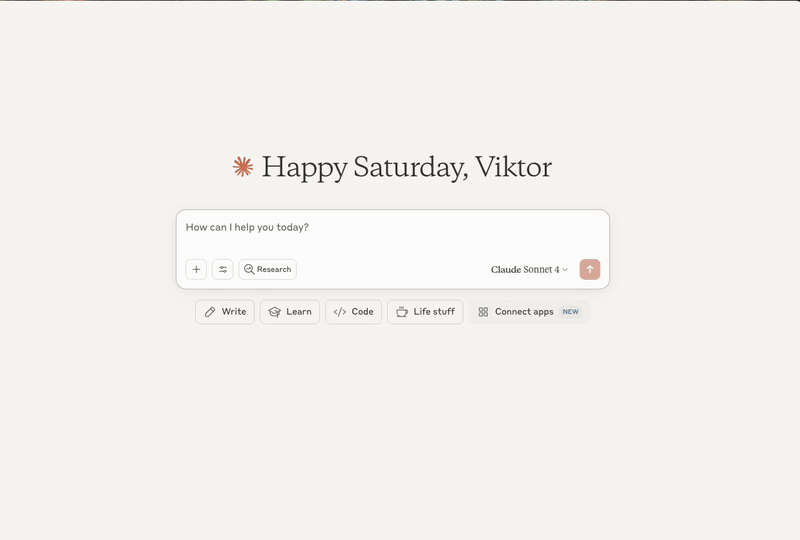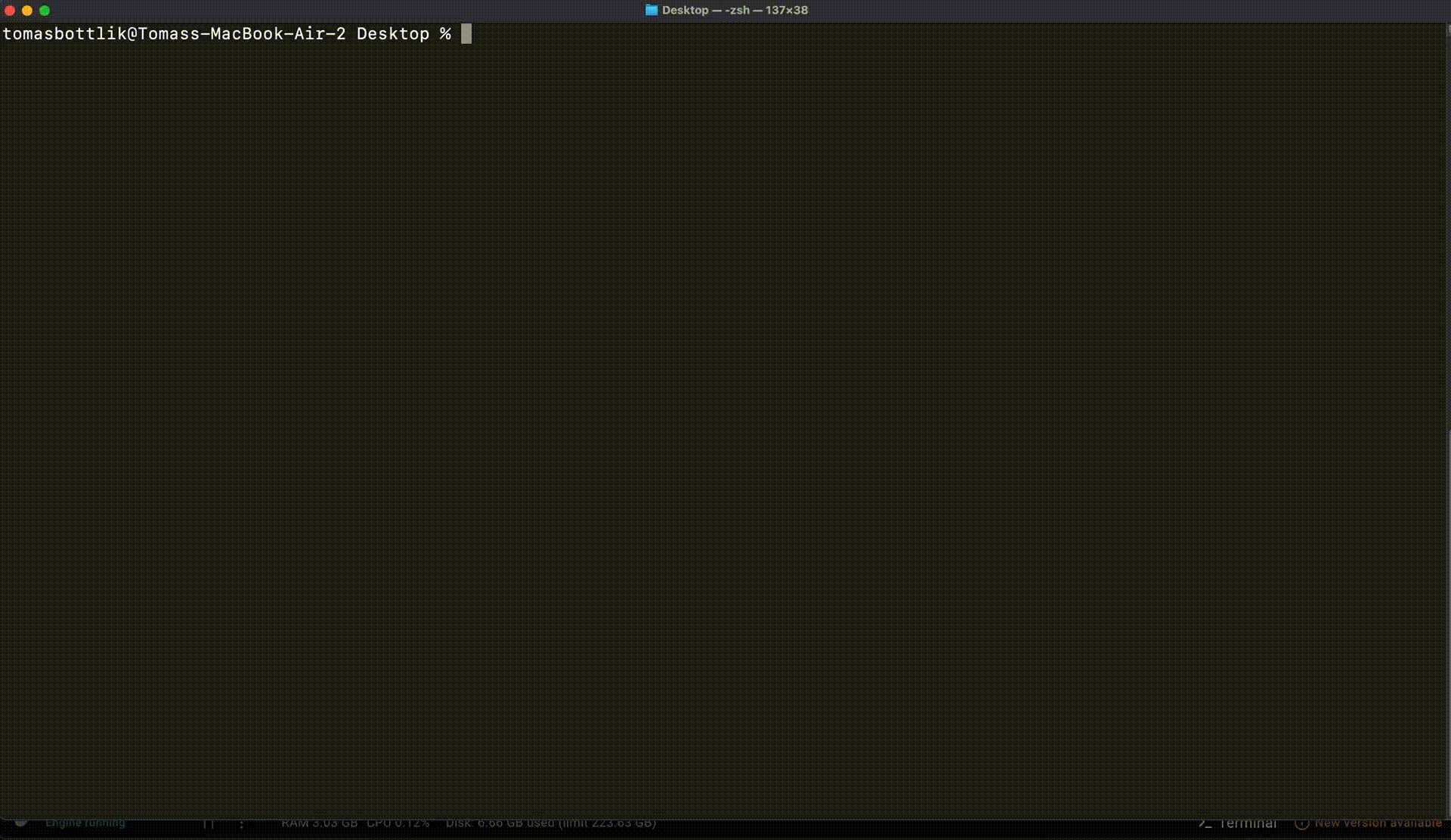Supports configuration through environment variables loaded from .env files, allowing secure storage of Odoo connection credentials.
Provides issue tracking and project management through GitHub's issue tracker for support and feature requests.
Enables interaction with Odoo ERP systems, providing tools for searching, creating, updating, and managing records across various models including customers, sales orders, products, inventory, and financial data.
Odoo MCP Server (Hybrid)
A hybrid Model Context Protocol (MCP) server that enables AI assistants to interact with Odoo ERP systems. Supports both HTTP streaming (for web AI agents) and stdio (for local AI assistants) modes.
📺 Demo
stdio Mode Demo (Claude Desktop)

HTTP Mode Demo (AI Agents & Remote Access)

Example Output

🚀 Quick Start
HTTP Mode (AI Agents & Remote Access)
stdio Mode (Claude Desktop)
Option 1: Install from PyPI (recommended)
Option 2: Install from source
Configure Claude Desktop
Add to your Claude Desktop config file:
macOS: ~/Library/Application Support/Claude/claude_desktop_config.json
Windows: %APPDATA%/Claude/claude_desktop_config.json
Local Development
🌐 Remote Access with ngrok (AI Agent Integration)
This implementation allows you to expose your local MCP server to AI agents like Flowhunt, enabling remote automation of your Odoo business processes.
Why Use ngrok?
- Remote AI Access: AI agents can connect to your MCP server from anywhere
- Business Automation: Enable Flowhunt and other AI platforms to automate your Odoo workflows
- Secure Tunneling: ngrok provides secure HTTPS tunnels with authentication
- No Infrastructure: No need to deploy to cloud servers
Setup Instructions
1. Install ngrok
Download and Install:
Sign up and get your authtoken:
- Go to ngrok.com and create a free account
- Get your authtoken from the dashboard
- Configure ngrok:
2. Start Your MCP Server
3. Create ngrok Tunnel
Copy the HTTPS URL (e.g., https://abc123.ngrok-free.app) - this is your public MCP server endpoint.
4. Configure Flowhunt Integration
Flowhunt Implementation Process:
Create a custom flow with AI Agents:
- Create a New Flow:
- Go to Flowhunt Dashboard
- Click "Create New Flow"
- Give your flow a name (e.g., "Odoo Business Automation")
- Add AI Agent Component:
- Drag and drop an "AI Agent" component into your flow
- Connect the AI Agent to:
- Input: Data source or trigger
- Output: Next step in your workflow
- Chat History: For context and conversation memory
- MCP Server: Your Odoo MCP server
- Configure MCP Server Connection:
- In the AI Agent settings, go to "MCP Server Configuration"
- Server URL:
https://abc123.ngrok-free.app - Protocol: HTTP/HTTPS
- Authentication: None (or configure as needed)
- Save the configuration
- Test the Connection:
- In your Flowhunt flow, start a chat with the AI Agent
- Ask the AI to test the Odoo connection, for example:
- The AI should be able to access your Odoo data through the MCP server
5. Flowhunt Workflow Examples
Complete Flow Setup Process:
- Customer Follow-up Flow:
- Sales Order Automation:
- Inventory Management Flow:
AI Agent Prompts for Odoo Operations:
Advanced ngrok Configuration
Custom Subdomain (Paid Plan)
Authentication & Security
Multiple Tunnels
Production Considerations
1. Persistent Tunnels
For production use, consider:
- ngrok Pro/Enterprise: For persistent URLs and custom domains
- Self-hosted ngrok: For complete control
- Alternative solutions: Cloudflare Tunnel, localtunnel, etc.
2. Security Best Practices
3. Monitoring & Logs
Troubleshooting
Common Issues
1. ngrok Tunnel Not Working:
2. AI Agent Can't Connect:
- Try asking the AI Agent simple questions in the chat:
- Check if the AI responds with Odoo data or error messages
- Verify the MCP Server URL is correct in the AI Agent settings
- Ensure the ngrok tunnel is still active (check ngrok dashboard)
3. Authentication Issues:
- If you configured basic authentication in ngrok, ensure the AI Agent settings include the credentials
- Test in the AI chat by asking: "Can you access the Odoo system?"
- Check the AI Agent's MCP Server configuration for authentication settings
- Verify the ngrok tunnel is configured with the same auth credentials
Integration Examples
Flowhunt Flow Configuration
In Flowhunt Dashboard:
- Flow Structure:
- AI Agent MCP Settings:
- MCP Server URL:
https://abc123.ngrok-free.app - Connection Type: HTTP/HTTPS
- Authentication: None (or Basic Auth if configured)
- Available Tools: All 12 Odoo MCP tools will be automatically detected
- MCP Server URL:
- Flow Example Configuration:
Custom AI Agent Integration
This setup enables powerful AI-driven automation of your Odoo business processes through secure remote access!
Custom MCP Server Development
We develop MCP Servers for customers, if you need MCP server for your own system similar to Odoo MCP server, please contact us (https://www.flowhunt.io/contact/). Here is the description how we develop MCP Servers for our customers: https://www.flowhunt.io/services/mcp-server-development/
Demo
Features
- 🔍 Search Records: Query any Odoo model with complex domain filters
- ➕ Create Records: Add new records to any Odoo model
- ✏️ Update Records: Modify existing records
- 🗑️ Delete Records: Remove records from the system
- 📊 Read Records: Fetch detailed information about specific records
- 📋 List Models: Discover available models in your Odoo instance
- 🔧 Model Introspection: Get field definitions for any model
- 🌐 HTTP Streaming: Full MCP Streamable HTTP transport support
- 🐳 Docker Ready: Complete containerization with Docker Compose
- 🔄 Server-Sent Events: Real-time streaming responses
- 🛡️ Security: Origin validation, CORS support, and session management
- 📊 Monitoring: Health checks, metrics, and observability
Installation
🐳 Docker (Recommended)
📦 Via pip
🔧 From source
Configuration
Environment Variables
Create a .env file in your project directory or set these environment variables:
Getting Odoo Credentials
- API Key:
- Log into your Odoo instance
- Go to Settings → Users & Companies → Users
- Select your user
- Under "API Keys" or "Security" tab, create a new API key
- Copy the key immediately (it won't be shown again)
- Database Name:
- Usually visible in the URL when logged in
- Or check Settings → Activate Developer Mode → Database Info
- Username:
- Your login email address
🚀 Quick Start
Docker Deployment
- Clone and configure:
- Configure your Odoo credentials:
Or edit the environment section directly:
- Start the services:
- Access the server:
- MCP Endpoint:
http://localhost:8000/mcporhttp://localhost:8000/(POST) - Health Check:
http://localhost:8000/health - API Documentation:
http://localhost:8000/docs - Server Info:
http://localhost:8000/(GET)
Local Development
🔌 Client Integration
MCP Server Inspector
The server is fully compatible with the MCP Server Inspector. Use these connection settings:
- URL:
http://localhost:8000 - Method:
POST - Content-Type:
application/json - Endpoint:
/(root endpoint)
The server automatically handles both GET (server info) and POST (MCP protocol) requests on the root endpoint.
HTTP Streaming Client
Connect to the MCP server using HTTP streaming transport:
Server-Sent Events (SSE) Streaming
For real-time streaming responses:
JSON Integration
The server provides a comprehensive JSON API for direct integration with any application. All MCP protocol methods are available via standard HTTP POST requests.
Basic JSON Request Format
Example: Initialize Connection
Example: List Available Tools
Example: Call a Tool
JavaScript/Node.js Integration
Python Integration
MCP Client Integration
For Claude Desktop, Cursor, or other MCP clients, use this configuration:
Claude Desktop (claude_desktop_config.json):
Cursor (.cursor/mcp.json):
Setup Steps:
- Start your MCP server:
docker-compose up -d - Install mcp-remote:
npm install -g mcp-remote - Add the configuration above to your MCP client
- Restart your MCP client
- You'll have access to all 12 Odoo tools!
✅ Current Status:
- HTTP JSON-RPC endpoints work correctly via
curl - All 12 Odoo tools are fully functional
- Server connects to Odoo and executes operations successfully
Working Configuration for JSON-RPC:
Available Tools
- search_records - Search for records in any Odoo model
- get_record - Get detailed information about specific records
- create_record - Create new records in Odoo
- update_record - Update existing records
- delete_record - Delete records from Odoo
- list_models - Discover available models in your Odoo instance
- get_model_fields - Get field definitions for a model
🐳 Docker Services
Core Services
- mcp-server: Main MCP server with HTTP streaming
- redis: Session management and caching (optional)
- nginx: Reverse proxy with SSL termination (optional)
Service Management
Endpoints
- MCP Endpoint:
http://localhost:8000/mcporhttp://localhost:8000/(POST) - Health Check:
http://localhost:8000/health - API Documentation:
http://localhost:8000/docs - Server Info:
http://localhost:8000/(GET)
🔧 Development
Local Development Setup
Testing
Code Quality
Docker Development
Contributing
Contributions are welcome! Please feel free to submit a Pull Request.
License
This project is licensed under the MIT License - see the LICENSE file for details.
Support
For issues and feature requests, please use the GitHub issue tracker.
This server cannot be installed
remote-capable server
The server can be hosted and run remotely because it primarily relies on remote services or has no dependency on the local environment.
A Model Context Protocol server that enables AI assistants to interact with Odoo ERP systems, providing comprehensive tools for searching, creating, updating, and managing Odoo records through a standardized interface.
Related MCP Servers
- -securityAlicense-qualityAn MCP server implementation that integrates with Odoo ERP systems, enabling AI assistants to interact with Odoo data and functionality through the Model Context Protocol.Last updated -209MIT License
- -securityFlicense-qualityAn implementation that integrates with Odoo ERP systems, enabling AI assistants to interact with Odoo data and functionality through the Model Context Protocol.Last updated -
- -securityAlicense-qualityA bridge that allows AI agents to access and manipulate Odoo ERP data through a standardized Model Context Protocol interface, supporting partner information, accounting data, financial records reconciliation, and invoice queries.Last updated -10MIT License
- -securityAlicense-qualityA comprehensive implementation of the Model Context Protocol for Odoo ERP systems that enables AI assistants to interact directly with business data across sales, purchases, inventory, and accounting modules.Last updated -18MIT License